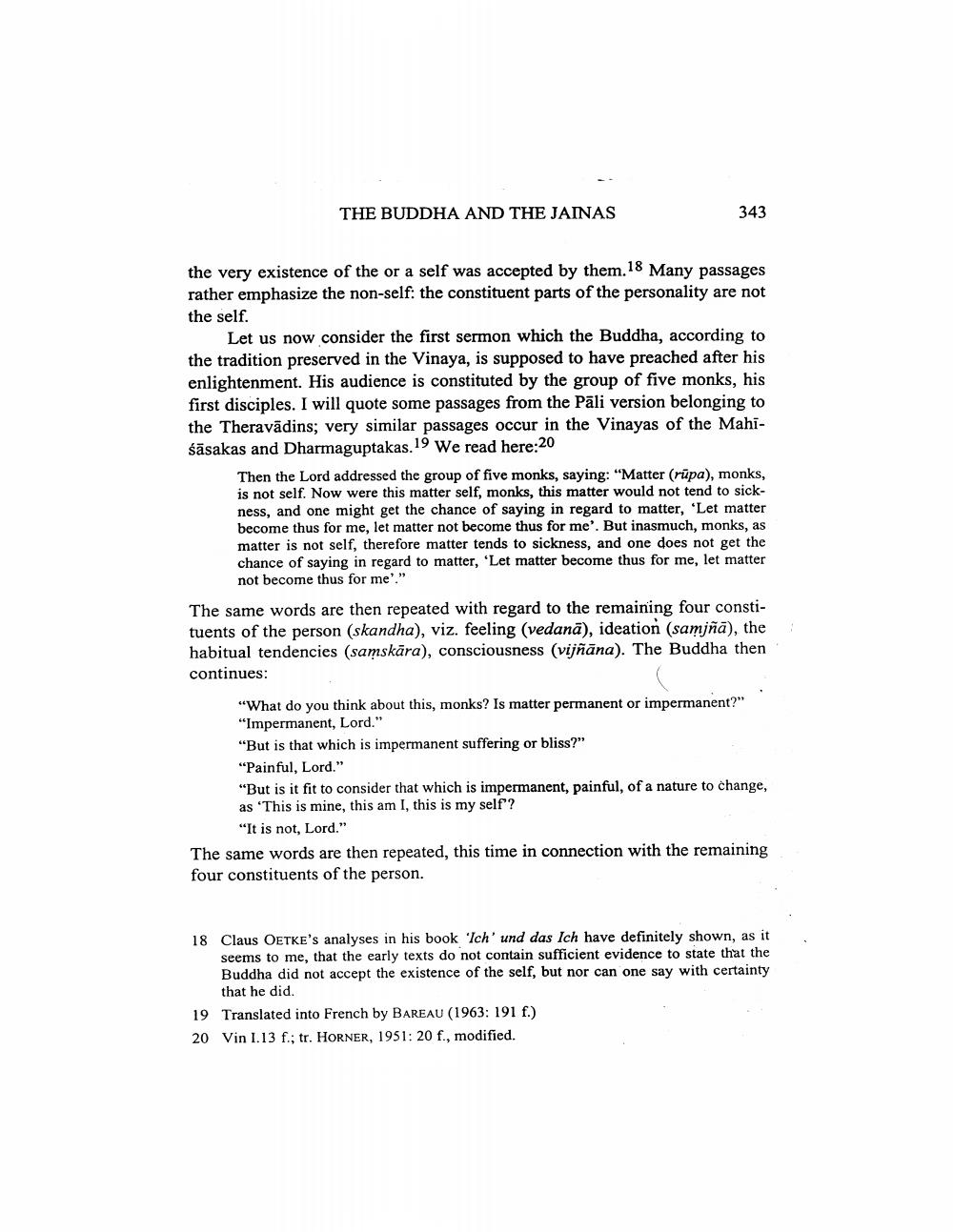________________
THE BUDDHA AND THE JAINAS
343
the very existence of the or a self was accepted by them.18 Many passages rather emphasize the non-self: the constituent parts of the personality are not the self.
Let us now consider the first sermon which the Buddha, according to the tradition preserved in the Vinaya, is supposed to have preached after his enlightenment. His audience is constituted by the group of five monks, his first disciples. I will quote some passages from the Pāli version belonging to the Theravādins; very similar passages occur in the Vinayas of the Mahiśāsakas and Dharmaguptakas. 19 We read here:20
Then the Lord addressed the group of five monks, saying: "Matter (rupa), monks, is not self. Now were this matter self, monks, this matter would not tend to sickness, and one might get the chance of saying in regard to matter, 'Let matter become thus for me, let matter not become thus for me'. But inasmuch, monks, as matter is not self, therefore matter tends to sickness, and one does not get the chance of saying in regard to matter, 'Let matter become thus for me, let matter
not become thus for me." The same words are then repeated with regard to the remaining four constituents of the person (skandha), viz. feeling (vedanā), ideation (samjñā), the habitual tendencies (samskāra), consciousness (vijñāna). The Buddha then continues:
"What do you think about this, monks? Is matter permanent or impermanent?" "Impermanent, Lord." "But is that which is impermanent suffering or bliss?" "Painful, Lord." “But is it fit to consider that which is impermanent, painful, of a nature to change, as 'This is mine, this am I, this is my self"?
"It is not, Lord." The same words are then repeated, this time in connection with the remaining four constituents of the person.
18 Claus OETKE's analyses in his book 'Ich' und das Ich have definitely shown, as it
seems to me, that the early texts do not contain sufficient evidence to state that the Buddha did not accept the existence of the self, but nor can one say with certainty
that he did. 19 Translated into French by BAREAU (1963: 191 f.) 20 Vin 1.13 f; tr. HORNER, 1951: 20 f., modified.




